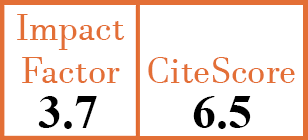Full Papers
Effects of respiratory muscle training on respiratory efficiency and health-related quality of life in sedentary women with fibromyalgia: a randomised controlled trial
P. Tomas-Carus1, C. Biehl-Printes2, J. Del pozo-Cruz3, J.A. Parraca4, H. Folgado5, M.Á. Pérez-Sousa6
- Departamento de Desporto e Saúde, Escola de Saúde e Desenvolvimento Humano, Universidade de Évora, and Comprehensive Health Research Centre (CHRC), University of Évora, Portugal.
- Instituto de Geriatria e Gerontologia da Pontifícia Universidade Católica do Rio Grande do Sul, Brasil.
- Epidemiology of Physical Activity and Fitness Across Lifespan Research Group, University of Seville, Spain.
- Departamento de Desporto e Saúde, Escola de Saúde e Desenvolvimento Humano, Universidade de Évora, and Comprehensive Health Research Centre (CHRC), University of Évora, Portugal.
- Departamento de Desporto e Saúde, Escola de Saúde e Desenvolvimento Humano, Universidade de Évora, and Comprehensive Health Research Centre (CHRC), University of Évora, Portugal.
- Epidemiology of Physical Activity and Fitness Across Lifespan Research Group, University of Seville, and Facultad de Ciencias del Deporte, Universidad de Extremadura, Cáceres, Spain. maperezsousa@unex.es
CER15351
2022 Vol.40, N°6
PI 1119, PF 1126
Full Papers
Free to view
(click on article PDF icon to read the article)
PMID: 35748715 [PubMed]
Received: 18/11/2021
Accepted : 24/01/2022
In Press: 22/06/2022
Published: 22/06/2022
Abstract
OBJECTIVES:
Fibromyalgia syndrome (FM) is a complex disease that is mainly characterised by chronic pain, fatigue, and sleep disturbances and may be precipitated or worsened by many stressors. The aim of this study was to examine the effects of respiratory muscle training (RMT) on respiratory efficiency and health-related quality of life (HRQoL) in women with FM.
METHODS:
A total of 30 women with FM were included in the intention to treat analyses: 15 were assigned to the RMT group and 15 to the control group. The intervention consisted of 12 weeks of RMT. The primary outcome was the change in pulmonary function assessed by global body plethysmography at 12 weeks compared with baseline. Secondary outcomes included changes of scores in HRQoL assessed by the Short Form 36 Health Survey-Portuguese version.
RESULTS:
The maximal inspiratory pressure (MIP) improved by 17.5% (p-value = .033), maximal expiratory pressure (MEP) improved 21.6% (p-value = 0.045) and maximum occlusion pressure (P0.1 max) increased 27.7% (p-value = 0.007). HRQoL improved in the dimensions of physical function, physical role, bodily pain and vitality (p-value <0.05).
CONCLUSIONS:
RMT results in a significant improvement of respiratory efficiency and HRQoL after 12 weeks. RMT could be an effective therapy to enhance respiratory function and quality of life in women with FM.


